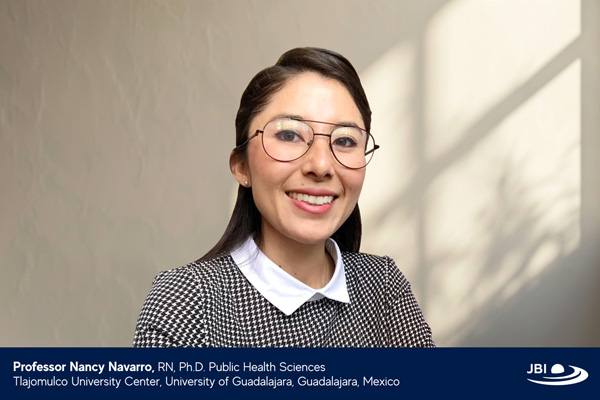
Nursing in Mexico
Strengths and challenges for local evidence-based practice
Nursing in Mexico has progressively established itself as a science of significant importance within the health system and multidisciplinary teams. The paradigm has shifted from experience-based practice to evidence-based practice (EBP), which encompasses clinical experience, patient needs and preferences, and the best available scientific evidence. This has acted as a major catalyst, not only for the professionalisation of the field but also for enhancing the quality of care provided to patients, their families, and communities, as well as benefiting health institutions and systems.
In Mexico, significant efforts have been made to enable nursing professionals to carry out EBP in the clinical, academic, scientific, technological and administrative contexts. These efforts range from the willingness of nurses to prepare themselves, to legal and academic reforms that promote the development of the profession.
From a regulatory perspective, a notable advancement has been the legal recognition of the scientific activities within the nursing profession, as stipulated in the Official Mexican Normative NOM-019-SSA3-2013, "For Nursing Practice in the National Health System". This opened up the possibility of research and its implementation in the hospital context.
In the clinical setting, the Ministry of Health, through the General Directorate of Quality and Education in Health, has made a significant effort to implement the EBP paradigm through the guidelines outlined in the Guide for the Nursing Care Model in Mexico. Within this model, EBP is embedded and acknowledged as an essential component of professional nursing practice in Mexico.
Academically, although the first nursing organisations in Mexico were consolidated in the 1970s, it was in 2007 that the Permanent Nursing Commission was established in the Official Journal of the Federation (DOF) as a collegiate advisory body to the Ministry of Health. One of its primary roles is to establish guidelines for professionalisation, addressing the heterogeneity of training across universities, particularly within the private sector, and advocating for workplace standards that align with professional competencies.
According to the System of Information and Administration of Human Resources in Nursing (SIAHRE), in 2024, there were 326,877 registered nurses in Mexico, of whom 44% (n=144,123) were trained as assistants or technicians, 47% (n=153,667) had university degrees, 5% (n=16,911) had completed a specialty (primarily surgical and administrative), 3% (n=11,340) held a master’s degree, and only 0.25% (n=836) had a doctorate. Additionally, 54% (n=177,312) of these professionals were over 41 years of age.
Since the recognition of nursing as a university-level profession, efforts have been made to enhance the academic profile of graduates and elevate the academic standing of active personnel. Unlike many other countries, Mexico permits nursing professionals to engage in activities related to high-complexity care within clinical, academic, research, and administrative settings in both the public and private sectors. This has driven the competitive spirit among students and practitioners to pursue advanced practice specialisations throughout their careers.
This is one of the significant strengths of Mexican nursing in implementing EBP, however, several challenges remain, which are being gradually addressed, promising positive transformations for the profession.
A primary challenge is the quality of instruction in the principles and knowledge of EBP and research across many university centres. There is a need to foster student interest and involvement in scientific activities to enhance their skills in scientific information search strategies, critical reading of articles, methodological knowledge and information analysis.
Although a scientific profile (master’s or doctoral degree) is not strictly required for EBP and Implementation Science in clinical contexts, a foundation in research is essential in both training and legal-occupational frameworks. This ensures that nurses are prepared to question, suggest, lead and implement evidence-based changes in their hospital environments. This could help ensure that nursing involvement in EBP plays a wider collaborative role with other multidisciplinary team members.

Author
Professor Nancy Navarro
RN, PhD Public Health Sciences
Tlajomulco University Center, University of Guadalajara
Guadalajara, Mexico